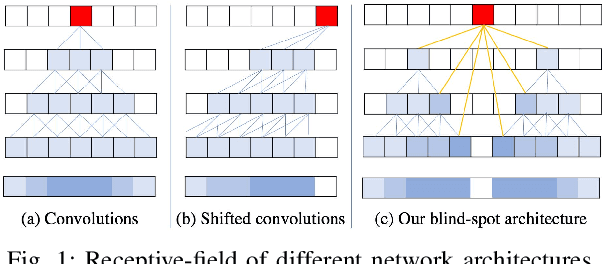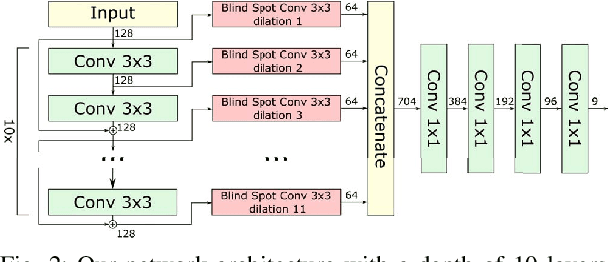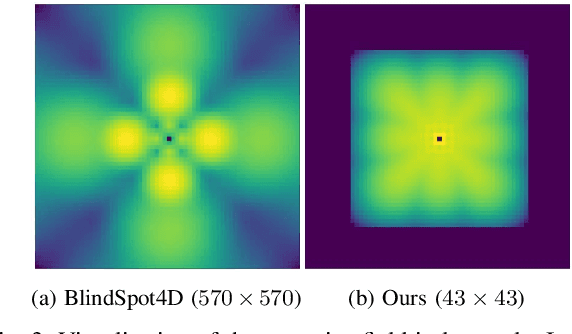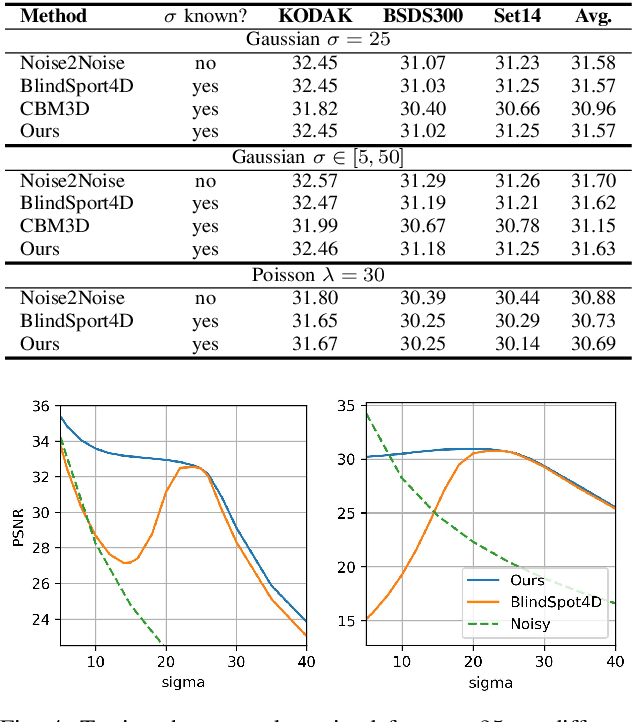Efficient Blind-Spot Neural Network Architecture for Image Denoising
Paper and Code
Aug 25, 2020



Image denoising is an essential tool in computational photography. Standard denoising techniques, which use deep neural networks at their core, require pairs of clean and noisy images for its training. If we do not possess the clean samples, we can use blind-spot neural network architectures, which estimate the pixel value based on the neighbouring pixels only. These networks thus allow training on noisy images directly, as they by-design avoid trivial solutions. Nowadays, the blind-spot is mostly achieved using shifted convolutions or serialization. We propose a novel fully convolutional network architecture that uses dilations to achieve the blind-spot property. Our network improves the performance over the prior work and achieves state-of-the-art results on established datasets.
 Add to Chrome
Add to Chrome Add to Firefox
Add to Firefox Add to Edge
Add to Edge